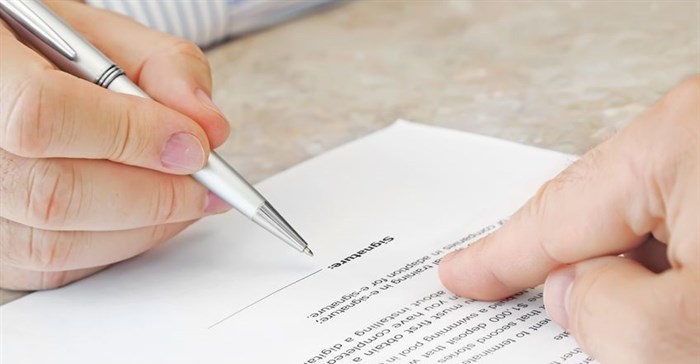When is a property sales agreement valid?
Purchasing a property is a significant financial investment and there are a number of processes to complete before the sale can go through - from getting pre-approval for a home loan to submitting an offer to the seller, to finally signing the sales agreement.
A valid sales agreement is binding once signed and can be used to protect either the buyer’s or the seller’s rights should either party be in breach in the future.
Prior to drafting the sales agreement, a buyer needs to present the seller with an offer to purchase. Once the seller has accepted and signed the offer to purchase, the sales agreement can be finalised and signed by both parties. A qualified estate agent will be able to guide both parties through the sales process and the intricacies of a sales agreement. Every agreement is unique and it’s important for both the buyer and seller to clarify any conditions, expectations and penalties up front.
The agreement can be adapted to each specific sale but every sales agreement needs to include the following to be legally binding:
1. Details:
- A proper description of the property.
- Details of both the buyer and seller which include full names, identity numbers, addresses and marital statuses.
- List the name of the conveyancer who will be managing the transfer.
- Confirm the commission amount due to the estate agent.
- Who will pay for the CoCs (Certificates of Compliance that need to be issued for electrical work, electric gates, gas and in the Western Cape for boring beetles). The seller normally pays for these. Any repair work needed to obtain these certificates needs to be detailed.
- List all fittings and fixtures included in the sale (and any specific exclusions).
- Confirmation that no amendments to the agreement of sale are valid unless in writing and signed by the buyer and seller.
- The agreement needs to indicate a deadline before which time the seller must sign the agreement. Should the seller not sign before the given deadline, the agreement will be voided.
2. Finances:
- The selling price and indication of the form of payment. If the buyer is paying a deposit the agreement must specify that it will be held in trust by either the estate agent or named conveyancer.
- If the sale is subject to the buyer getting a home loan the agreement must include the amount, the institution granting it and importantly, a date by which it must be approved.
- The agreement needs to confirm whether the buyer will pay all of the transfer fees, taxes and municipal charges from the date of possession.
3. Conditions:
- If the sale is subject to the buyer’s property being sold a date by which it must be sold must be included, as well as a description of the property and a sales price.
- Inclusion of the all-important ‘voetstoots’ clause (meaning that the property will be sold ‘as is’).
- List the date on which transfer of ownership will take place as well as the date on which the buyer will take possession. If the buyer is going to take occupation before the transfer takes place, he or she will need to pay occupational rent – the amount and method of payment needs to be specified.
It is important for both the seller and the buyer to know that excluding any items to be discussed at a later date will mean that the proposal is not a complete offer – implying that acceptance of the document will not create a contract, unless of course the items to be discussed are immaterial to the sales contract. Another crucial point to remember is that any changes or amendments need to be reduced to writing and signed off by all the contracting parties for it to be valid.
About Bruce Swain
Bruce Swain is the CEO of Leapfrog Property Group.






















